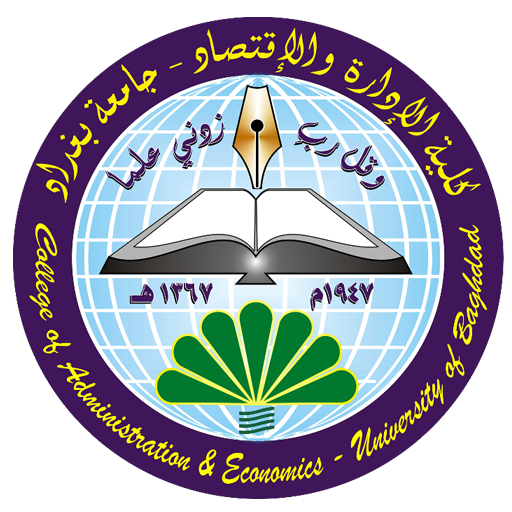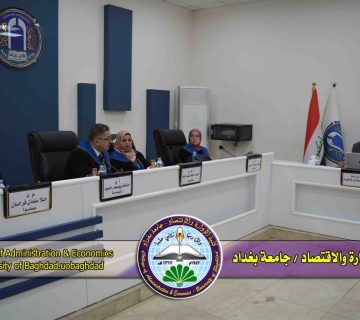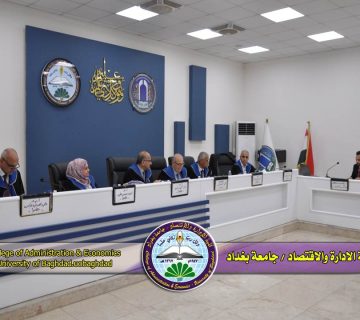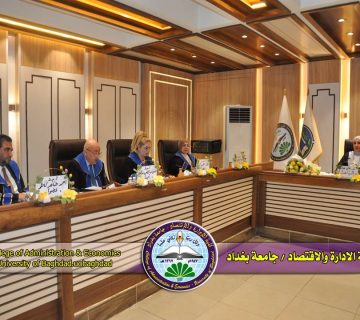The College of Administration and Economics at the University of Baghdad discussed, a PhD dissertation in field of Economic by the student (Nadia Lutfi Jaber) and tagged with (Evaluation of poverty alleviation strategies under economic empowerment, income generation and social protection programmers in Iraq) , Under supervision of (Prof. Dr. Thaer Mahmoud Rashid )
The poverty alleviation strategies in Iraq represent the general national framework for what they include of specific goals that should be implemented to alleviate poverty, which reached (20.5%) of the population in 2023, which constitutes a significant percentage. It was necessary to address the issue of poverty as a major economic and social issue, and what the results of these strategies resulted from and whether they achieved the desired goals, in light of the set of imbalances and challenges and the failure or non-implementation of these strategies in light of the continuation of the phenomenon of poverty in a country rich in natural and human potential, so that this contributed to increasing the effects of this phenomenon and its geographical spread in all governorates, and its negative repercussions led to the exacerbation of complex economic and social problems towards a sharp and major social contradiction, and turned into an obstacle to performance in light of the failure of the proposed treatments. Accordingly, the research problem and the goal crystallized in the extent of the impact of policies and economic empowerment programs and social protection network programs in the national strategy for poverty alleviation in addressing this phenomenon and achieving its goals effectively, so that this required reviewing, analyzing and evaluating the strengths and weaknesses through Monitoring various indicators.
Accordingly, the study focuses on the importance of strengthening policies and providing financial and non-financial support for economic empowerment programs to generate income, which would alleviate poverty by addressing its causes.
One of the most important conclusions included in the study is the persistence of the problem of poverty in Iraq in a chronic manner, as its rate reached (20.5%) in 2023, and (42%) of the total population is classified as vulnerable groups, which reflects a contradiction between the abundance of natural and human resources and the standard of living of individuals, in light of the government’s interest in adopting and pursuing strategies, policies and programs to alleviate poverty. In addition to the empowerment programs aimed at economically empowering the poor, which were based on either national strategies for poverty alleviation or government initiatives, this economic empowerment is financial empowerment and not economic empowerment, as there is a difference between financial empowerment and economic empowerment. The former is reflected through the existence of financial loans at low interest rates, while the concept of economic empowerment extends to include the existence of commercial, financial, monetary, social and economic policies in general, which enable individuals to obtain income-generating opportunities. The study reached the most important recommendations to address the root causes of poverty by focusing on reforming the education and health system, encouraging investments in infrastructure to support rural development, enhancing the fight against corruption to ensure effective allocation of resources, as well as enhancing community awareness of the importance of education and family planning, and promoting a culture of saving and investment among poor groups, in addition to establishing a specialized center entrusted with the responsibility of supporting and developing small projects called (Industrial Business Incubators Center) and supervising their activities and development and providing scientific, technical and commercial support in an integrated package, and providing advice in the field of developing and updating training curricula on project management and operation and designing training programs to develop practical efficiency in the marketing and organizational field in a manner consistent with the needs of the labor market.










